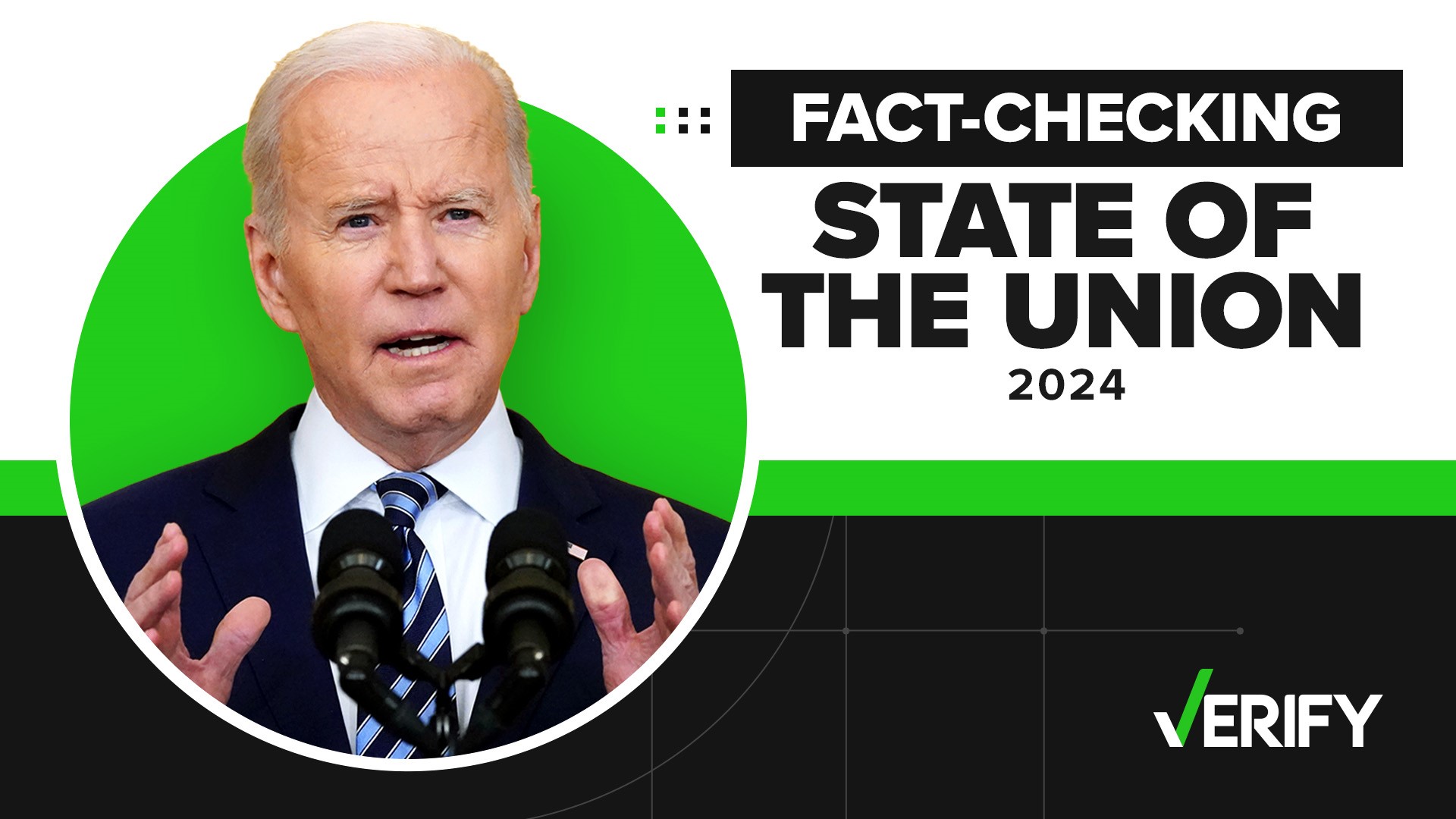WASHINGTON — President Joe Biden looked back at his record and set a tone for his priorities for the rest of his fourth year in office during his annual State of the Union address.
Among the issues he highlighted were Russia's war in Ukraine, funding for additional border security measures, restrictions on abortion and reproductive rights and the impacts of the economy on American families.
CLAIM
“The Alabama Supreme Court shut down IVF treatments across the state, unleashed by a Supreme Court decision overturning Roe v. Wade.”
SOURCES
Alabama Supreme Court decision
Alabama Senate Bill 159
ANSWER
While some clinics chose to stop IVF treatments for patients, the Court's ruling did not address the procedure or ban it.
WHAT WE FOUND
On Feb. 16, the Alabama Supreme Court issued a ruling that said frozen embryos counted as unborn children under state law.
The decision led three health care providers to suspend all in vitro fertilizations (IVF) treatments for fear that they might face legal action should a frozen embryo be damaged or destroyed.
The American College of Obstetricians and Gynecologists said the ruling did not ban IVF, but would "severely limit or effectively remove access to in vitro fertilization."
The ruling led to significant backlash from Democrats and Republicans. State lawmakers quickly passed Senate Bill 159, which provides criminal immunity to health care providers and equipment manufacturers in the event a frozen embryo is damaged or destroyed.
Alabama Gov. Kay Ivey released a statement after signing the bill into law, saying in part, "IVF is a complex issue, no doubt, and I anticipate there will be more work to come, but right now, I am confident that this legislation will provide the assurances our IVF clinics need and will lead them to resume services immediately."
UAB Medicine, one of the state's largest health care providers, had paused all IVF treatments after the state Supreme Court's ruling, but announced after the new law was signed that it was resuming those treatments.
CLAIM
“Americans pay more for prescription drugs than anywhere in the world.”
SOURCES
ANSWER
Americans pay more than people anywhere else in the world for prescriptions, especially for brand-name drugs.
WHAT WE FOUND
While recent studies show that Americans pay less for generic medications than many other countries, the high price of name-brand drugs pushes up the amount the average American pays beyond that of people anywhere else in the world.
A 2022 report from the U.S. Department of Health and Human Services, based on 2018 price data, showed that, on average, Americans paid 256 percent more for prescription medication than people in 32 peer countries. After accounting for discounts and rebates, Americans still paid almost double what people in the other 32 countries paid.
A Rand Corporation report in 2021 came to the same conclusion. It showed that generic medications cost slightly less in the U.S. than in peer countries, but brand-name drugs cost substantially more.
Analysis of price data by the Peterson-KFF Health Tracker concluded that the gap is growing between the U.S. and other countries in prescription spending, because spending on medicine in the U.S. is increasing faster than in other peer nations.
A Senate Health, Education, Labor & Pensions committee hearing in February 2024 was titled, "Why Does the United States Pay, by Far, the Highest Prices in the World for Prescription Drugs?"

